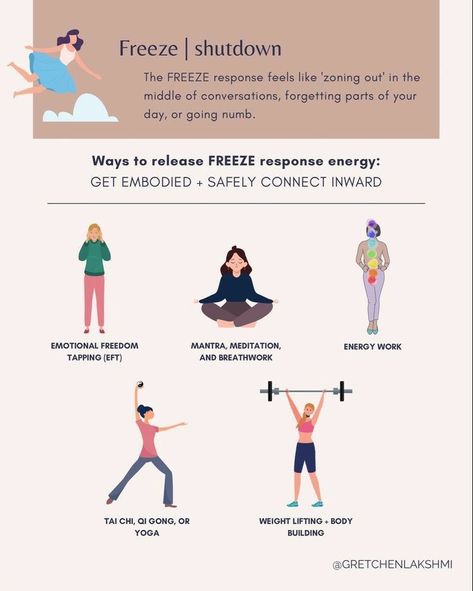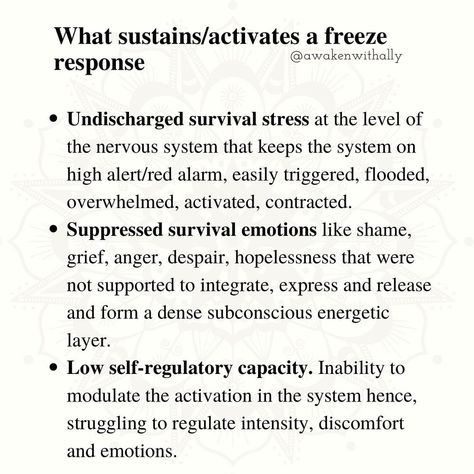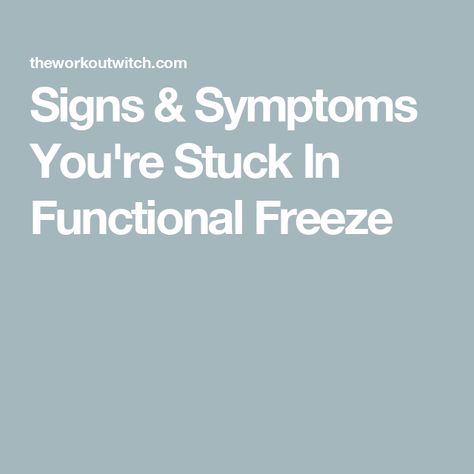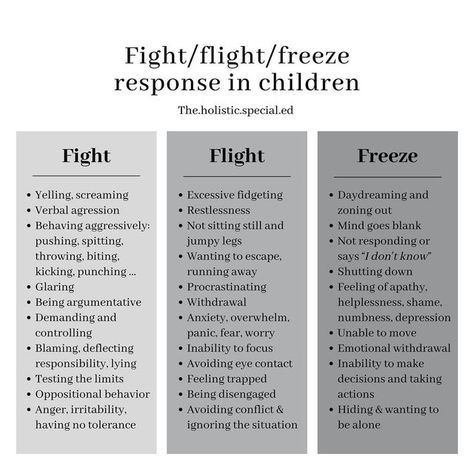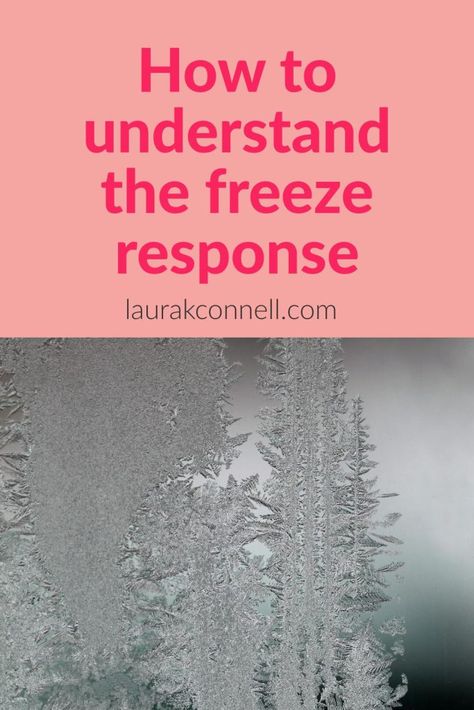Freeze response
Discover Pinterest’s best ideas and inspiration for Freeze response. Get inspired and try out new things.
2k people searched this
·
Last updated 1mo
Trauma responses? There are actually 5 of these common responses, including 'freeze', 'flop' and 'friend', as well as 'fight' or 'flight'. The freeze, flop, friend, fight or flight reactions are immediate, automatic and instinctive responses to fear. Understanding them a little might help you make sense of your experiences and feelings.
Living with the freeze response can leave you feeling numb and disconnected due to the body's protective mechanism. It affects everything from your emotions to your gut health. The good news? You can overcome it with somatic exercises that release stress, improve your energy, and restore balance.
The Freeze Trauma Response Immobility and numbness Shutdown or feeling stuck in a part of the body Feeling frozen, cannot move Holding breath/restricted breathing Deer in headlights Heavy limbs Eyes are still Hyper aware of body Sense of dread
Freeze and collapse resemble each other in the sense that they both involve the inability to move. However, it is important to recognize that there is a physiological difference between the two. For example, you can have a “freeze response” without the presence of PTSD or a current traumatic experience. The way the nervous system is impacted reflects this as well. It’s important to know the difference as both may prompt different forms of treatment and intervention. 💜
Have trouble taking action when you’re stressed? Here’s what you need to know about the “freeze” response, including 5 tips for moving through it
Ever felt frozen over simple tasks, like replying to a text or washing dishes? 😣 You’re not alone—this is called functional freeze, a response to feeling overwhelmed. It’s a survival mechanism our brains use to cope with stress, even in the face of everyday tasks. With small steps, awareness, and self-compassion, you can break free from the cycle. 🌱 Take it one step at a time—you’ve got this! 💪 #FunctionalFreeze #HeadFirstHealth #ChicagoTherapist #ChicagoCounselor
Ever felt frozen over simple tasks, like replying to a text or washing dishes? 😣 You’re not alone—this is called functional freeze, a response to feeling overwhelmed. It’s a survival mechanism our brains use to cope with stress, even in the face of everyday tasks. With small steps, awareness, and self-compassion, you can break free from the cycle. 🌱 Take it one step at a time—you’ve got this! 💪 #FunctionalFreeze #HeadFirstHealth #ChicagoTherapist #ChicagoCounselor
A freeze response is a very common stress response and is one of the response we can see in our daily life. Here are some examples in which the freeze response may occur in certain situations of our day to day life.
Your nervous system can become stuck in a functional freeze state after living with chronic stress or stored trauma for months, years, and even decades. Here are some common signs and symptoms of being stuck in functional freeze.
“Functional freeze” is a defensive survival response often associated with feelings of panic. Symptoms of functional freeze include feeling numb, in a fog, tired, or withdrawn.
4 simple tips on how to get out of the functional freeze response
Jade | Holistic Mental Health on Instagram: "Behaviors are an indicator of how children are perceiving situations in their brain + body. The behaviors we label as "bad" are actually automatic responses of the nervous system. In response to overwhelming stress in children, the brain drives the fight, flight or freeze response and release of stress hormones. It’s a survival instinct that actually involves the limbic system, more specifically the amygdala, and shut off communication with the…
Here's an interesting chart from @nicabm_ about the different nervous system states of freeze vs shutdown. On the surface they look similar, but underneath there's a very different physiological response. BTW, the Shutdown response is closely associated with depression and burnout, where the freeze response is associated with anxiety.
Have you been in situations where looking back you should have felt intense fear but instead felt nothing? Did you minimize or deny rather than assess the circumstance accurately?
Related interests
Freeze response and more
